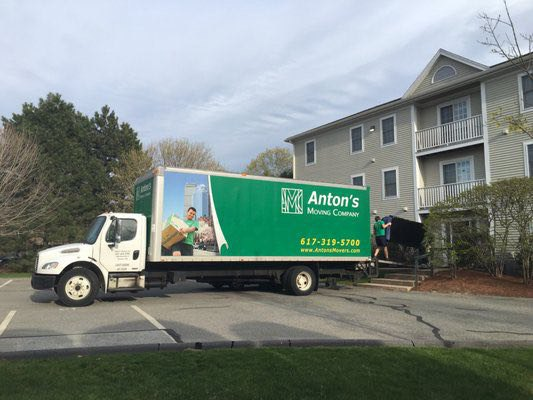Here’s the thing about moving: it always sounds simple until you’re knee-deep in boxes and can’t remember which one has the coffee maker. And then someone casually mentions, “Oh, this isn’t just a local move, this is long-distance,” and suddenly you realize the rules just changed.
I’ve seen neighbors in Wellesley go through this exact situation—some were only moving a few streets over, others were headed all the way to New York. Same word, “moving,” but the process looked totally different. That’s why people usually lean on trusted Wellesley Movers, because they know the difference and can walk you through it before you’re drowning in tape and packing paper.
What Actually Defines a Local vs. Long-Distance Move
You’d think the difference would be obvious, but it’s not always. Around here, most movers call anything within about 50 to 100 miles “local.” So, if you’re hauling your stuff from Wellesley to Brookline or even into Boston proper, that’s still local.
But once you cross state lines, you’re officially in long-distance territory. Heading down to D.C. for work? Or maybe shipping everything out to Chicago? That’s a whole other ballgame. It’s one of those little details that makes a big difference. The crew at Wellesley Movers deals with this every day, so they’ll tell you quickly whether your move falls into one category or the other.
How Costs Differ Between Local and Cross-Country Relocations
Let’s talk money, because honestly, that’s what everyone wants to know first. Local moves are usually billed by the hour. The truck, the number of movers, and how many flights of stairs they’re climbing—that’s what sets your price. If you’re just moving from one end of Wellesley to the other, you might be done and unpacking by dinner.
Long-distance moves, though? Those get calculated by weight and mileage. You’re basically paying for the size of your load and how far it’s traveling. A family I know moved from Wellesley to Philadelphia, and their final bill looked nothing like my cousin’s three-hour local move into Cambridge.
And don’t forget storage. With local moves, it’s rarely needed. But long-distance moves sometimes mean your belongings have to hang out in a warehouse for a bit until move-in day lines up. Reliable Wellesley Movers often have their own storage solutions, which saves you from juggling two different companies.
Planning and Logistics Challenges You Should Expect
Local moves are usually pretty straightforward. You pack, they load, you drive a short distance, and you’re unpacking by nightfall. Forget something? No big deal—you can drive back.
Long-distance moves… not so simple. There are delivery windows, sometimes stretching over days. Your stuff might share a truck with another family’s belongings. Weather, traffic, and timing all play a role. It’s kind of like a road trip you’re not actually on—but all your belongings are.
When a friend of mine moved from Wellesley to New York, the biggest stress wasn’t the packing. It was the waiting. Having good Wellesley Movers in the loop made it manageable—they gave her updates, realistic timelines, and kept things from feeling like her furniture was just lost somewhere on I-95.
Insurance, Rules, and Legal Differences to Keep in Mind
Here’s where things can get a little boring but super important. Local moves in Massachusetts are covered by state rules. Movers need to be licensed and insured, but as a customer, you don’t have to do much beyond signing the paperwork.
Long-distance moves cross into federal territory. That means your moving company needs a DOT number, and you’ll probably be offered choices in coverage—basic protection that pays per pound or full-value coverage that actually covers replacement costs. Trust me, if you own something fragile or sentimental, you’ll want to pay attention here.
Good Wellesley Movers are upfront about this stuff. They’ll explain what’s covered and what isn’t so you’re not left wondering what happens if your antique dresser takes a hit.
How to Choose the Right Movers for Your Move Type
At the end of the day, it comes down to who you trust with your stuff. For local moves, I’d always recommend a company that knows the area. There’s nothing worse than a crew getting lost in Wellesley traffic or struggling to figure out where to park the truck. Local knowledge goes a long way.
For long-distance, experience is everything. You want movers who have made the trip dozens of times, who know how to coordinate schedules, and who can deal with the unexpected. Ask questions, read reviews, and don’t just take the cheapest quote.
That’s one of the reasons people around here stick with Wellesley Movers. They’ve got the local know-how and the long-distance experience, and that combo takes a lot of stress out of the process.
Final Thoughts
Here’s my takeaway: a local move and a long-distance move might both involve boxes and trucks, but they’re very different experiences. Local is usually quicker, easier, and cheaper. Long-distance requires more planning, more patience, and more trust in the team you hire.
Either way, it’s a fresh start. And if you’ve got the right movers behind you, the whole thing feels a lot less overwhelming—maybe even exciting.

